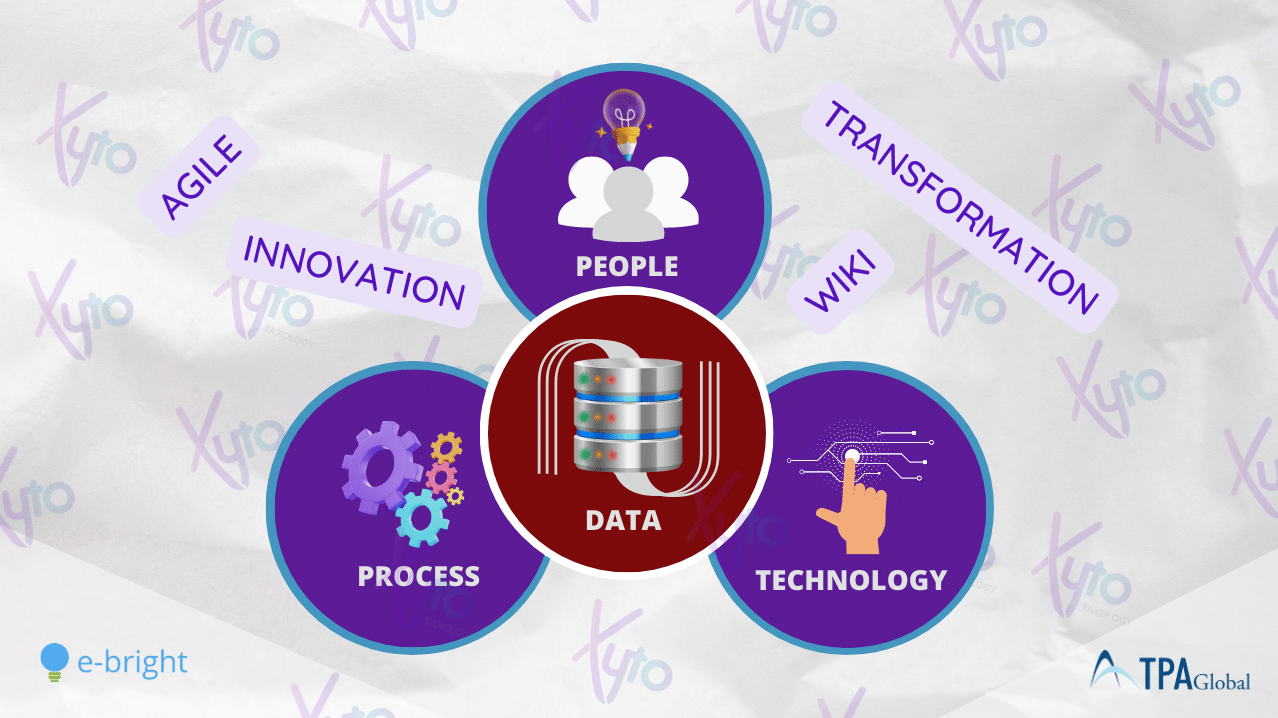Part 3 of 5: Key Concepts in the Future of Tax
Cliché Busting: The Substance Behind the Sound Bites
The third concept under review, namely ‘data’, is without doubt the most impactful to the future of tax. As a paradigm-shifting medium for tax information, digitalized ‘data’ is firmly in the process of redefining the industry, and it is the focal point around which all tax transformation revolves.
This sentiment is expressed in two powerful statements which we like to share widely and often:
“As oil was to the energy industry in the 20th century,
so data is to the tax industry in the 21st century.”
…and as tax authorities turn ever more towards transaction level e-regulation:
“Your tax position is no longer what you say it is,
it’s what your data says it is.”
While the impact of this on tax advisors remains muted for now, for in-house tax professionals acting as full business partners to the rest of the organization, it’s turning their world upside down.
Gone are the days when tax preparers sit at the edges of the system and data wrangle ERP downloads in Excel before submitting to authorities. As data reaches jurisdictions at speeds and in quantities greater than ever before, the tax function is left with one option and one option only that makes sense:
“Get tax data right first time at source.”
But before digging deeper on that, let’s first take a step back and ask an important question – Why all the fuss? What is so important about ‘data’? (Note: we use single quotes when referring to ‘data’ in concept rather than the data itself).
It’s hard to avoid the default view that ‘data’ is little more than paper documents held in digital form. Excel does little to dispel that myth because it’s only one small step up from paper, albeit using a digital medium. The same is true of e-filing.
However, corporate-wide data & tax data held on powerful database platforms using sophisticated business data models and supported by ever-improving enterprise applications and query tools, is an entirely different prospect altogether.
If handled correctly, this data platform acts as a window onto your entire company – a digital twin, if you like, a mirror on the whole organization, instantly available and constantly updated. It offers in-house tax professionals complete access to their domain at speeds and levels of granularity previously unimaginable. Like giving eyes to a person born blind, it’s an utter game-changer.
And make no mistake, this is exactly what the tax authorities are after as well. They’re scrambling to build up sophisticated digital profiles on their taxpayers and gain holistic visibility and control over their hinterlands in same way that in-house tax professionals should be looking for in their own organizations.
However, there’s a problem or two:
Bad data and garbage in, garbage out are pandemic in today’s corporate databases, and;
Lack of enterprise data skills and ‘data’-literacy means few, if any, know how to improve this (even CDOs – chief data officers – have a poor track record).
As a result, data is frequently a risk-laden, corporate liability instead of the highly prized asset – or even THE most valued asset – it should be.
The data industry and data sciences don’t help much either. They typically focus on managing vast data reservoirs and gleaning golden nuggets from its depths. Only a relatively small part of the industry deals with pinpoint preciseness and the uber-accurate reflection of the entire organization in data that tax desires.
As such, “getting tax data right first time at source” seems like a forlorn hope, as does trust in data. But as tax authorities lift their approach to data from plumbing to meaning, this is an escalating risk. The last thing in-house tax managers want is for the authorities to know more about their companies than they do. There’s no value in that for their stakeholders.
So, what’s the way forward? Well, in our opinion, it starts with a manageable, meaningful, and realistic approach to ‘data’ that does not cost the earth.
Our starting point at Xyto and partners is the business stories that data, a.k.a. the digital twin, tells you, or should tell you. For example, any VAT manager will tell you how B2B VAT numbers work in the EU, but is this correctly reflected in data and the systems?
To answer that question is a simple exercise in data modelling that anyone can do if shown how. Completing this exercise for 10-15 key business data objects is all it takes to turn the corner, and start treating ‘data’ as the bedrock of the tax function.
In Part 4 we explore the challenge of rapid digital upskilling, mushrooming tribal knowledge needs, the social influencing required to elevate the role of tax, and how wiki-style knowledge management has a critical role to play in all of this.
Taxology Part 1: Why Agile Matters
Taxology Part 2: The Essence of Transformation
Key Concepts in the Future of Tax – A five part series
In one sense, taxology is about excellent delivery of tax technology with built-in digital future-proofing.
Xyto and partners are all about realizing both for the price of one, such that…
Their combined value is far greater than the sum (cost) of their parts.
But how? … Well, it’s really no big mystery. We’re not trying to hide secrets.
We simply run journeys that unshackle the most powerful concepts already available today!
These are not new and many in tax have heard of them, yet they remain curiously out of reach.
This 5 part series looks at the truth behind five critical keywords that tip the balance when tax adopts meaningful digital enablement.
Until next time,


No comment yet, add your voice below!